The global power and energy transition
Our world is changing rapidly and not always in comforting ways
In our first post, What is the Overton Window?, I outlined my view on geopolitics.
There is the visible form of geopolitical discourse, the family photo opportunities.
Then there are the invisible machinations that lead to AUKUS and nuclear submarines.
There was no public debate on AUKUS, nor does it seem that there ever will be.
That is democracy in action.
You elect some people, they get in a huddle, and then spring whatever the hell they want onto an unsuspecting public. First the public are told that we need nuclear submarines, but not nuclear power. Now the opposition want nuclear power.
This is the Overton Window process at work.
The Overton window is the range of policies politically acceptable to the mainstream population at a given time.
You start in one place, whatever place is acceptable, and then move to a new place.
It is critical, to the manufacture of consent, that you never disclose the destination. Everything is the innocent, step by step process of herding the public sheep.
I say this with some rancor, because the discussion among NATO members now seems to have descended on the inevitability of World War III.
Excuse me, inevitable to whom?
Excuse me, inevitable why?
Excuse me, do you have no actual Plan B?
Excuse me, do you have any actual plan at all?
Leadership is about making hard choices.
The hardest leadership choice not taken is to talk with our adversaries.
This used to be called diplomacy, but it is now denigrated as appeasement.
I started this newsletter to help self-directed investors navigate this world, to find opportunity, and to avoid bad outcomes, where possible.
I did not start this newsletter with a political mission to pull the wool over the eyes of punters so that they would blindly accept whatever nonsense is served up to them.
This attitude requires some circumspection, and a somewhat realistic appraisal of the options before us. Certainly, a major war involving Australia is possible, but I do not think it is wise to presume that we know where it will start, when, or with whom.
I defer to the judgment of one George Washington, in his 1796 Farewell Address.
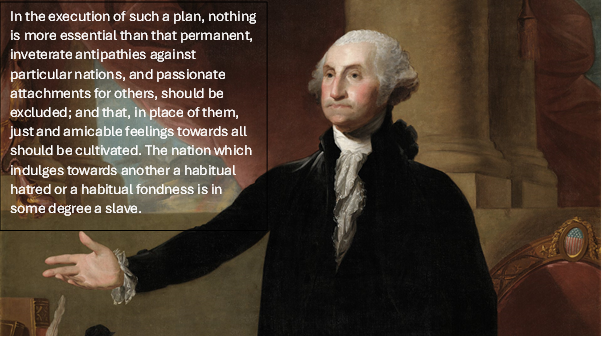
I need say no more than that.
Australia is now a slave to AUKUS, and by implication the US and the UK.
Our colonial past is both embraced and restored.
Our constitution counts for nothing.
We are slave, and vassal, both.
Why AUKUS and why now?
I have no illusions that I can change much about AUKUS by complaining.
In a representative democracy, this avenue might conceivably work. However, we do not, anymore, have such a system of government. We are a client state of the USA.
Our major role, as a vassal state, is to buy more US origin weapons systems.
You might think that geopolitical musings are without practical consequence.
Let me disabuse you of that notion with some sound investment ideas.
General Dynamics XNYS: GD is on a tear supplying 155mm ammunition for the war(s).
Lockheed Martin XNYS: LMT is doing a little less well because they produce platforms such as the F-35, which are not being used up (destroyed) very much at this time.
Raytheon Technologies XNYS: RTX is starting to do a little better after having a serious issue with product quality on one line of Pratt & Whitney jet engines. They likely have a much brighter future ahead selling Standard Missiles 3 & 6 for the US Navy, plus a redesigned Stinger missile, to make up for the fact that the original chips are no longer made, and bits and pieces of the Patriot Missile Systems that are being progressively eliminated by Russian missile attacks in Ukraine.
Don’t assume that there is no bright spot in Australia.
Bisalloy XASX: BIS is a mostly civilian-focused specialty steel maker in Australia. Due to the deindustrialization of the West, there are now very few makers of ballistic steel. This is the steel you need for armour plate to protect vehicles.
Bisalloy is getting new orders for such steels to enhance protection of vehicles from topside attack by drones in the numerous expanding theatres of war.
From one perspective, all this war has been good for a few companies.
Is war good for business?
However, we should harbor no illusions that war is good for business. The myth that war drives commodities demand is just that, a myth, a fantasy, a non-story.
Let me give a simple example with global merchant shipping and the US Navy.
What, you may ask, is the global tonnage of merchant shipping?
The number is about 1.5B tons. Ener8 lists it as 1,479,783,000 Gross Tonnage across a fleet of 118,928 ships. The vast majority of that tonnage is commercial traffic.
Roughly a quarter of the total tonnage is Oil & Chemical tankers.
For comparison, data scientist Chris Rickert used Congressional Research Services reports to estimate the US Navy Gross Tonnage at 3,601,900 t.
The US Navy mounts 0.24% of total shipping tonnage.
Yeah, but what about the Chinese Navy?
Everybody knows they are a huge threat because they have way more ships.
Yeah, they have more small ships.
The PLA Navy (PLAN) mounts a Gross Tonnage of 387,208t.
This is 0.026% of total shipping tonnage.
Throw in the Chinese Coast Guard at 101,310t.
Wow. Now the Chinese Navy and Coast Guard is 0.033% of global tonnage.
If you made the entire ship from steel, you would need 7.27 times more steel to create the US Navy from scratch than the Chinese Navy and Coast Guard.
However, we know that the US steel industry is not really growing.
Let us compare the fleet tonnage to global steel production.
According to the World Steel Association, the 2024 outlook is for 1,793 Mt. That is millions of tons, so around 1.793Bt, or about 1.21 times global shipping.
Ships are long life assets. You don’t throw them out and get a new one each year.
However, if you did, you could replace the entire global fleet with 301 days of global steel production, assuming that the steel plants ran seven days a week.
Suppose you sank the entire US Navy, the entire Chinese Navy, and their Coast Guard. How much steel would that consume, as measured in days of global production?
To replace the US and China Navies would take 0.83 days of steel production.
That is an overestimate, because the ships are not only made of steel.
Yes, we do know that foolish politicians will promote war for jobs and growth, and all the good things that they have absolutely no idea how to secure for the punters.
However, war is not terribly good for economies.
If you analyze global commodity demand, as I have done, you will find that there was a lift passing from the Great Depression into World War II. However, the big boom happened once the war was over. Reconstruction uses lots of materials.
If you are a war bull on commodities, then you should earnestly wish for current war in Ukraine to end in some kind of negotiated peace.
Once the Ukraine war ends, commodities demand will genuinely boom.
The destruction has been as horrific as it is widespread.
In answer to my rhetorical question: Why AUKUS, and why now?
War is popular with our politicians for one simple reason.
Our politicians have no idea how to manage our economy.
When your leadership lacks vision and competence, war is a splendid distraction.
The real existential threat is Climate Change
Earlier, I mentioned that roughly one quarter of the global merchant fleet tonnage is devoted to shipping oil, gas and petrochemicals. This is our fossil fuel heritage.
Of course, to replace this will take time, and considerable investment.
This is why climate change, and the energy transition, is the singular investment opportunity of our time. Trillions of dollars of investment are required.
Sadly, our politicians, especially the progressive left represented by US President Joe Biden, would rather spend trillions of dollars on wars against any government that he does not like. The result has been global inflation, a doubling down on trade wars, tariffs, sanctions, and other assorted wars, both kinetic and economic.
Of course, these are disastrous policies.
I am an avowed realist in my approach to geopolitics. I do not think it is possible to compel others, by force of arms, to agree with your point of view. I think that Joe Biden has entirely failed in his proselytizing mission to fight autocracy.
I am no fan of Donald J. Trump, but I think it is up to Americans to sort out how they run their country while I advocate fiercely that Australians learn to run their own.
It is not the job of the Australian national security community to run our country, which is a good thing because they are truly terrible at it.
The policies pursued in our Critical Minerals industry have all but destroyed it.
I am not an apologist for regimes that oppress their own people, but neither am I a fool who cannot recognize where nations are making a positive global contribution.
As I expanded at length, in a discussion with Dr. Pascal Lottaz of Neutrality Studies, China is making a profound global contribution to combat climate change.
China now leads in Electric Vehicle (EV) manufacture, adoption and sales.
They also lead, across the board, in Photovoltaic (PV) silicon, cell, module, and panel production, plus wind energy turbines, high voltage transmission and nuclear.
These are not starry-eyed statements from some Pajama wearing mini-Mao fan toting a Little Red Book about the threats from Sparrows, or some other such nonsense.
This is a pragmatic acknowledgement of the world we live in.
I am a global investor.
I go where the meaningful action is to be found.
Right now, that is US armaments manufacturers and Chinese civilian industrials.
I am not interested in making investments in Chinese military companies.
They are not a growth investment.
The most exciting of these opportunities is Chinese energy transition companies.
I will have more to say on this once we start coverage of the China A-share market.
One constantly repeated refrain I do not accept is the foolish idea that only Western firms can innovate, and only Western firms are a force for good.
I think that is unreconstructed nonsense.
The idea is pure bunkum.
The global power and energy transition
I started this post by reprising my piece on the Overton Window and the political process by which consent is manufactured for war, or other purposes.
In my view, the West has become its own worst enemy. It gives full reign to dark forces of political manipulation to subvert its own democratic processes, while crying:
‘Look, over yonder, there lurk people subverting our system.”
If subversion means buying a new Made-in-China BYD car that is better than my current Made-in-China Tesla Model 3, then I say: “Bring it on!” Subvert me.
The Tesla Model 3 is a good car but the ergonomics of the vehicle suck. It has a really bad design and positioning of items like the speedometer, which demands that you take your eyes off the road to read it. It also has some very bad and strange quirks within the driver assist system that make it outright dangerous for roundabouts.
Like I said… I am a realist. I like my Tesla, but I would never buy another one.
This fact speaks to the organizing principle of our world today.
We are in a midst of a global power and energy transition.
My Tesla story speaks to this dynamic.
I do own BYD stock, but not Tesla XNAS: TSLA stock.
I am not even remotely interested in buying Tesla stock.
There was a lead shown by Tesla in bringing on the energy transition.
However, the leadership of that company has failed the power transition.
The market is all powerful in determining which firms thrive and which die.
The Chinese consumer EV market is far and away the largest and most demanding market on Earth. BYD dominates that market and Tesla is losing share.
Tesla has not adapted their strategy for rapidly changing Chinese consumer tastes, which are very consumer experience oriented.
Chinese EVs have “heads up” odometer displays and active LIDAR ranging.
This is the kind of technology that would attract me to purchase.
Stainless steel urban assault vehicles, like the Cybertruck, do not interest me.
The take I have on where we are headed is very simple.
The USA is a great place to buy stock in weapons manufacturers.
In contrast, China has an autocratic government with a dynamic marketplace.
China is a great place to buy the next generation of consumer companies.
That is firms like Xiaomi XHKG: 1810 and BYD XHKG: 1211.
In the tense geopolitical cauldron of our time, where positive efforts to encourage trade, prosperity, and productive diplomacy, are shunned, I firmly adhere to that viewpoint espoused by George Washington in his farewell address.
Antipathy in one nation against another disposes each more readily to offer insult and injury, to lay hold of slight causes of umbrage, and to be haughty and intractable, when accidental or trifling occasions of dispute occur.
This is the fundamental political error of one President Joe Biden.
The West needs to get itself back on track.
This global investor is not waiting to be told what to do or where to go.
I can see with my own eyes where the opportunity lies.
Good luck with your portfolio and happy investing.



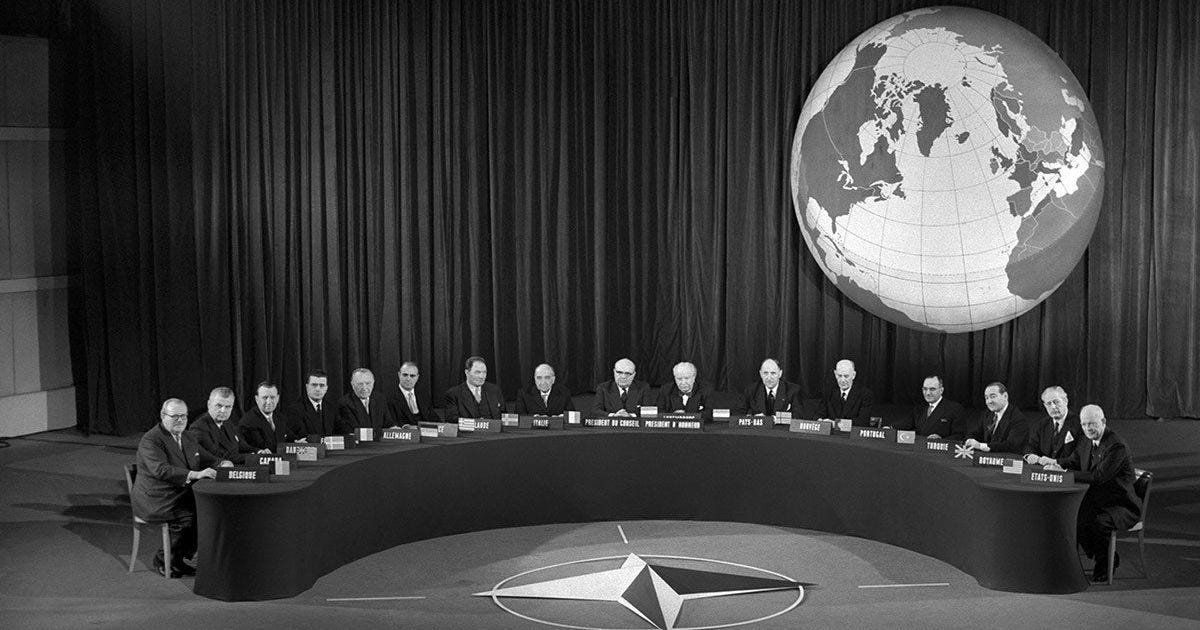
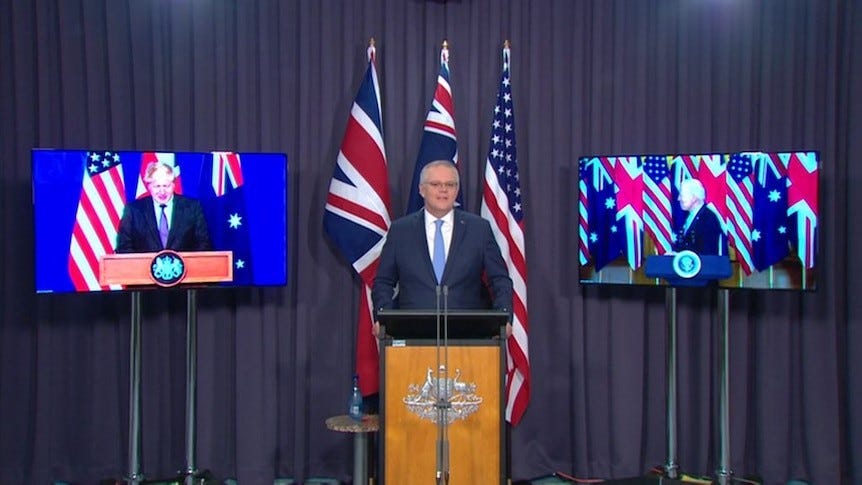
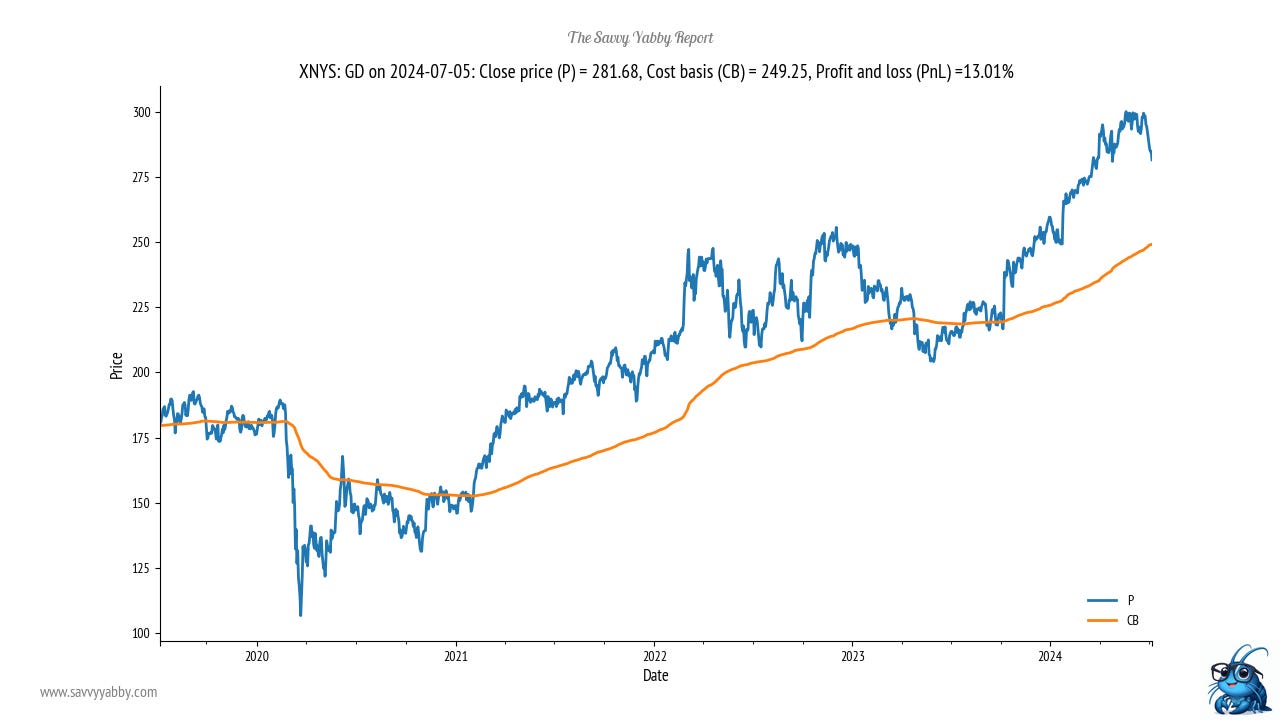
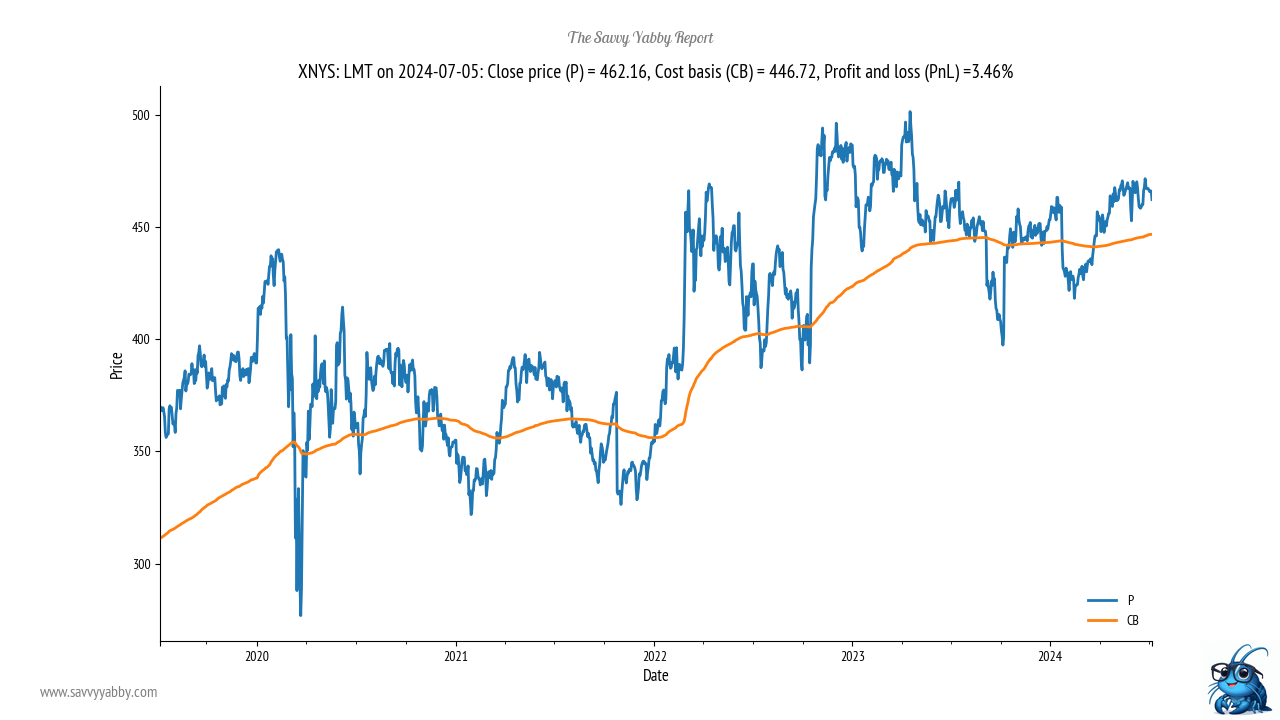
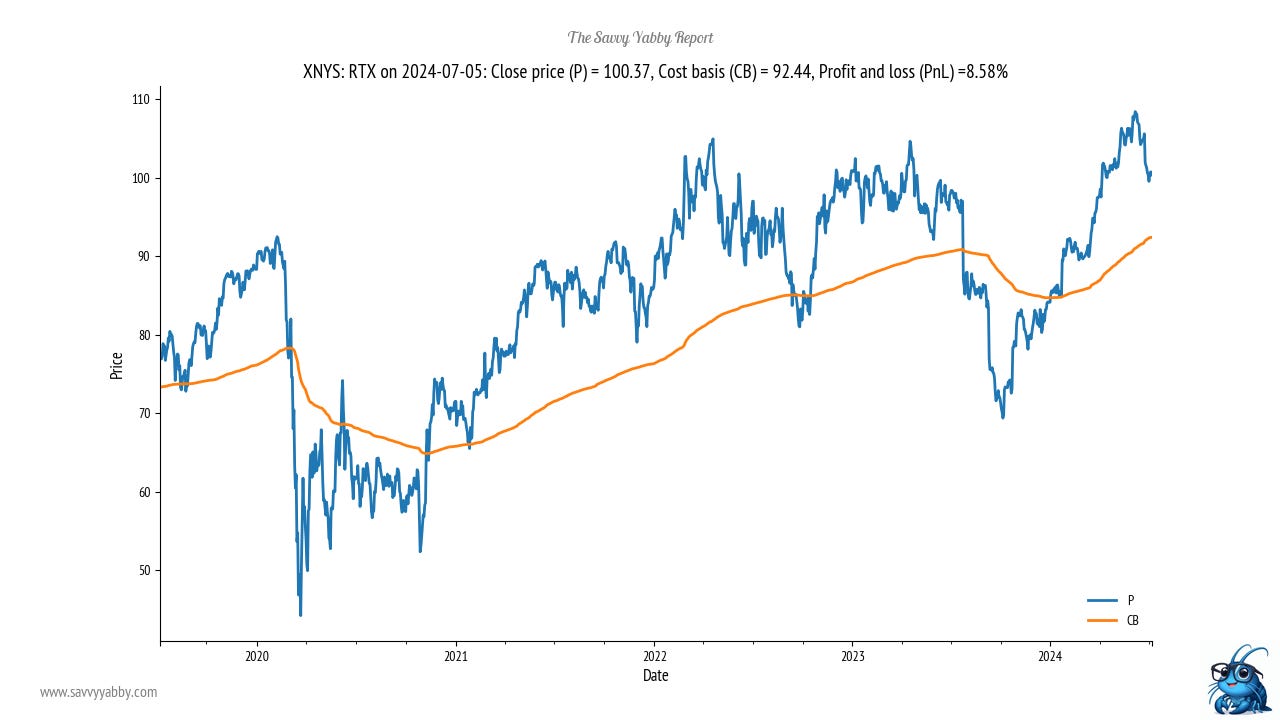
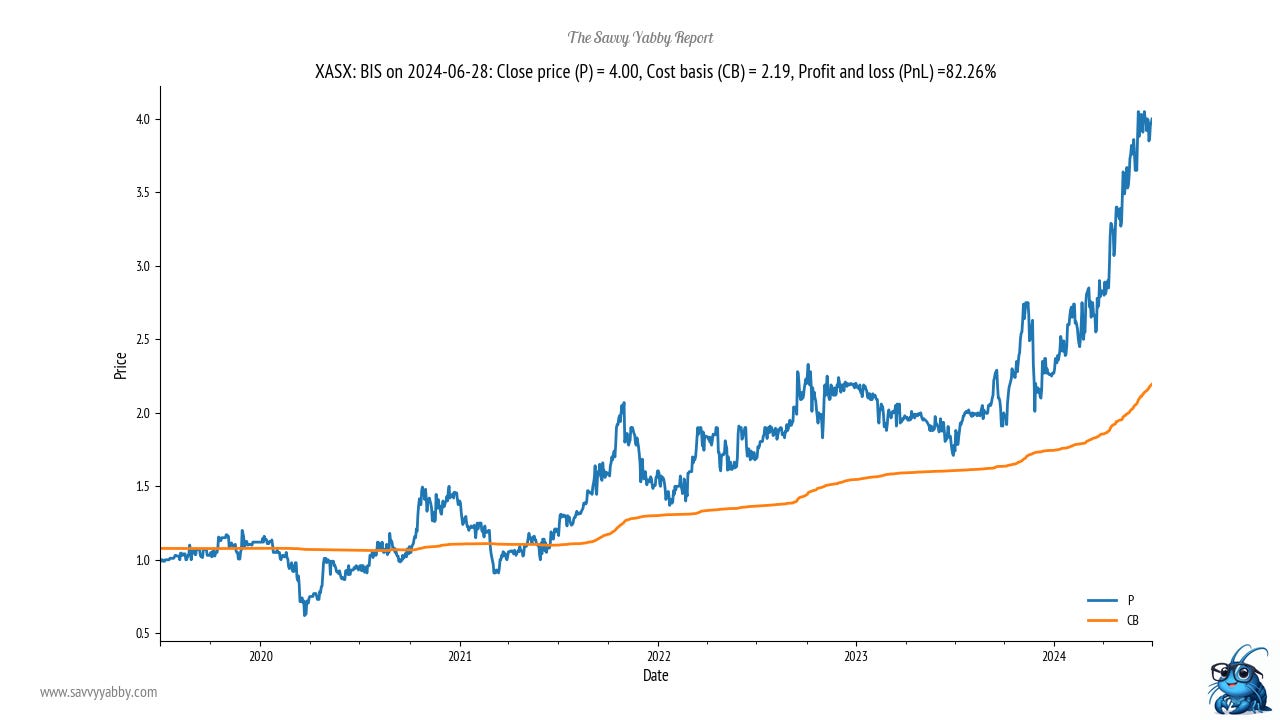
I like your contrarianism re: war and rare earth propaganda but believe you are missing the climate propaganda. The opposition is growing to the climate scare. There are IMO much better explanations of the climate and that there is no problem with manmade CO2, coming from various professors of physics than from the groupthink bureaucrats and panic merchants of the IPCC and its army of NGO activists. You could look up professors William Happer (Emeritus, Princeton), Richard Lindzen (Emeritus, MIT), Ivar Giaever and John Clauser (Nobel prize Physicists), Steve Koonin (Under Sec of Science for Obama) and countless others like Willie Soon.
Much of the success of the scare by activists was in the claim that 97% of scientists agree that manmade CO2 emissions will heat the globe. Which was turned into 97% of them believe it will create a disaster. The claim by the professors above is that yes there is a positive effect on temps but it is a miniscule, non lasting effect. There is much else explaining the success of the scare: from hockey stick temp chart fabrications, to the urban heat island effect on old temperature stations originally located in the outskirts of cities that in recent decades have become part of the cities as they expand outward thus unfairly pushing up temperatures, the actual correlation of temps with CO2 emissions in the last 100yrs (a non statistical conclusion based on random noise when you consider how short this period is in relation to other historical data of thousands of yrs - which actually shows reverse causation ie: temp changes cause CO2 changes with a lag of 800y (as the ocean degasses/ regasses CO2)).